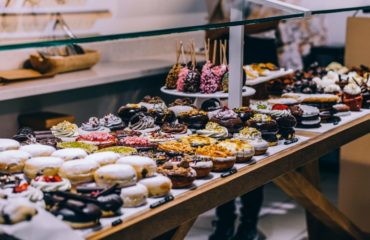
Foods that shake the emotional state more than others, contributing to anxiety and / or depressive disorders. Nutritionist Anna Parkhomenko has compiled a detailed guide to nutrition during the war, which will help maintain mental health and balance.
Alcohol
Helps increase the level of cortisol (stress hormone) in the body, thereby increasing the feeling of anxiety and worry.
Unfortunately, there is no way to avoid such effects of alcohol on the body, except for its consumption. Note that the frequency and dose play: the more servings of alcohol and more regular consumption, the more pronounced the disturbing effect.
Also very influential coffee, matcha, black and green tea, cocoa, dark chocolate, energy drinks. Caffeine increases cortisol, which stimulates anxiety.
If you focus on safe doses of caffeine (300-400 mg / day), the risk of adverse effects on the body – including on the level of anxiety – low. Want more drinks? Add decaffeinated: decaf, herbal teas, water.
How much caffeine in … (approximate figures)
portions of Americano, Robusta (170 ml) – 160 mg
portions of Americano, Arabica (170 ml) – 80 mg
cans of energy (240 ml) – 80 mg
match cup (170 ml) – 70 mg
a cup of black packaged tea (240 ml) – 50 mg
a cup of green tea (240 ml) – 30 mg
portions of cocoa prepared from 1 teaspoon of cocoa powder without a slide – 15 mg
10 grams of dark 56% chocolate – 20 mg
portions of decaf (170 ml) – about 3-5 mg
Sugar substitute
Inhibits the production of serotonin (happiness hormone). This is not the only disadvantage of aspartame, by the way. It also contributes to the depletion of the gastrointestinal microbiota, which can lead to endocrine disorders and weight gain.
How to avoid harm?
Do not consume or consume hardly, when you really wanted that drink with aspartame (most often found in “dietary” carbonated beverages).
Minimize trans fats in the diet (fast food, industrial pastries) – do not consume daily, do not rely on them as a basis for the diet, open and taste whole foods.
Trans fats and fast food
There is a hypothesis that trans fats (hydrogenated vegetable fats, “cooking fat”, margarine, etc.) potentiate the reuptake of serotonin in the human brain, and thus contribute to anxiety and depressive disorders.
Also harmful added sugar and refined foods (white rice, oatmeal, white bread).
In the case of abuse of these products, their inharmonious consumption in the blood there are contrasting differences in glucose and insulin, and then dopamine, which can be felt as a state of exhaustion, apathy, anxiety or even aggression.
Moreover, sugar and sweets increase anxiety only when a person systematically disharmoniously consumes them. This means that it does not combine proteins, fats, complex carbohydrates, fiber and dessert on one plate, but daily, for example, eats cereal with dried fruit or chooses cakes for a snack.




